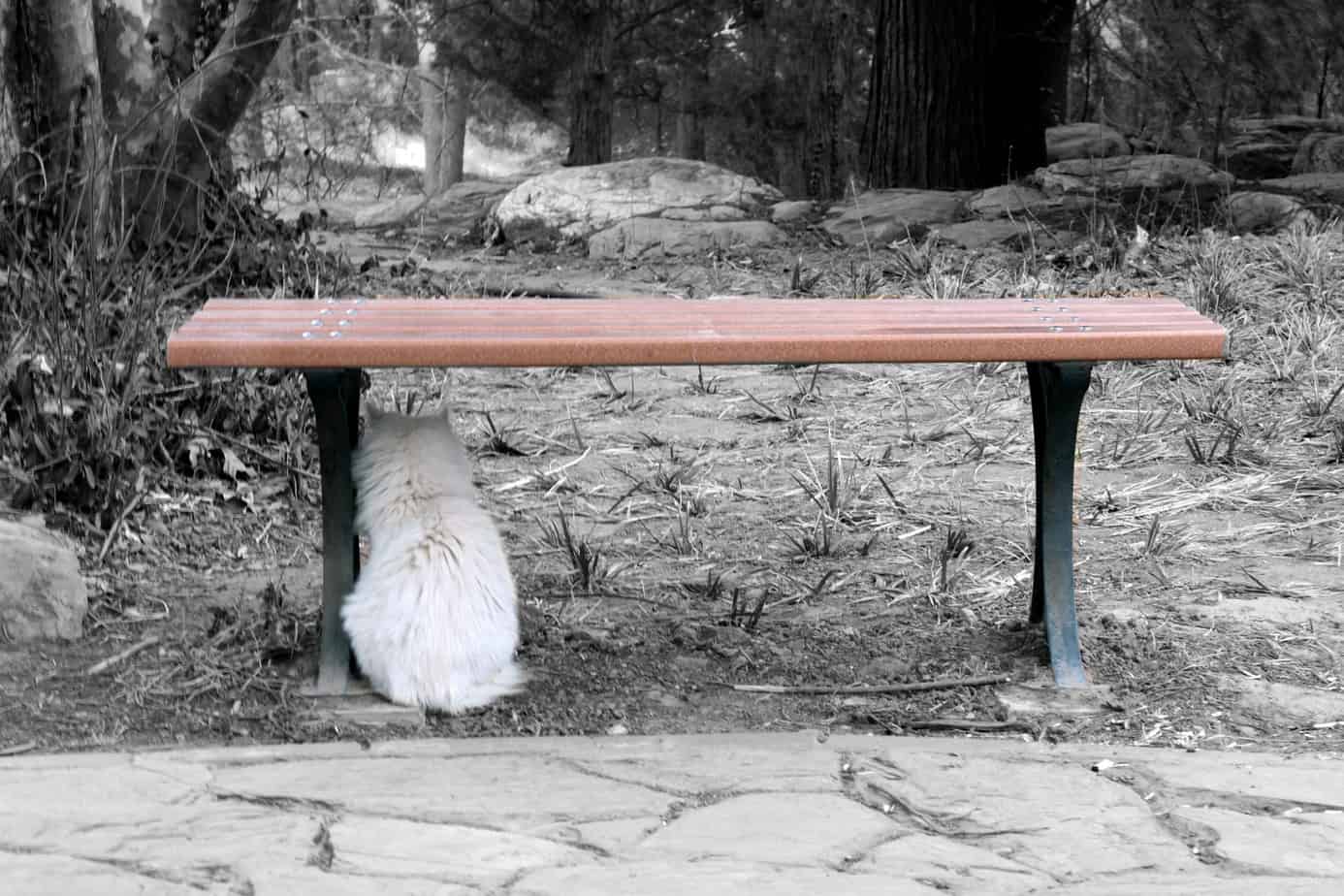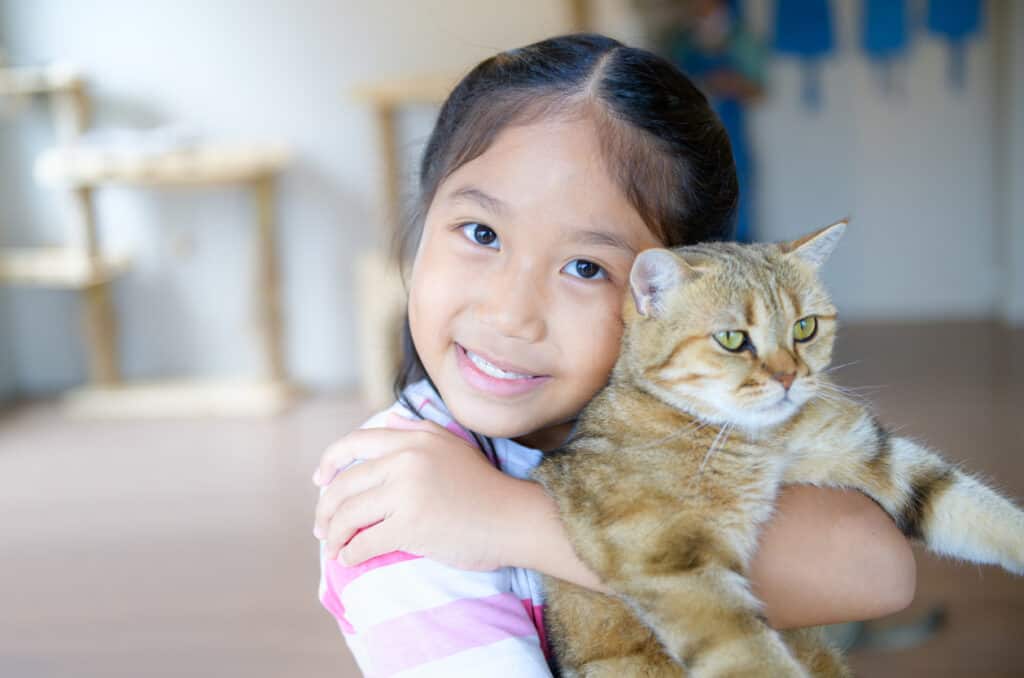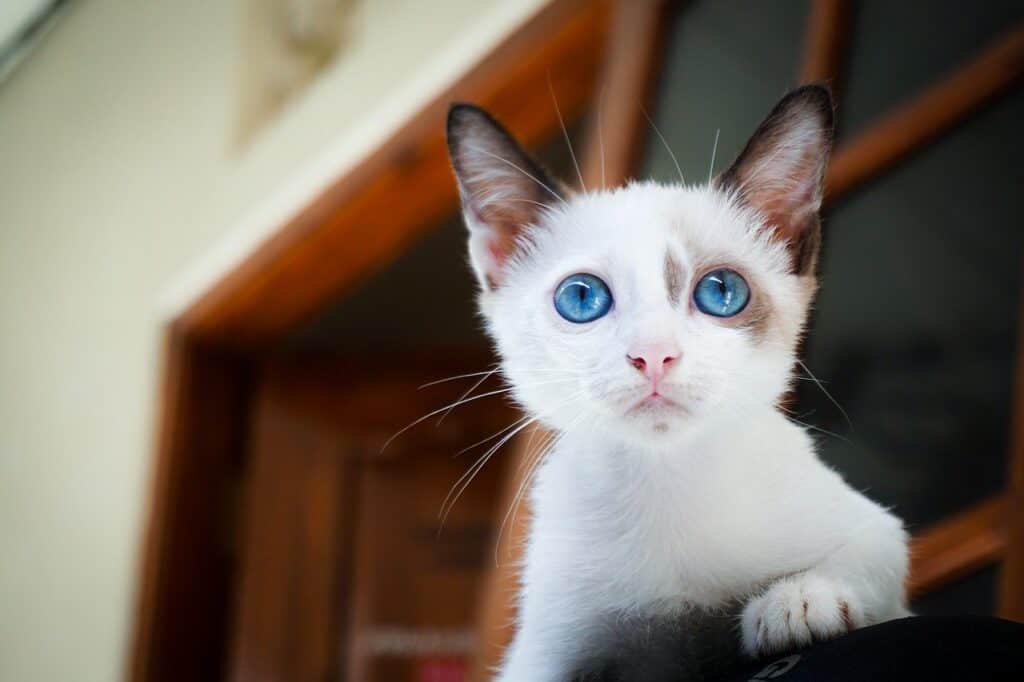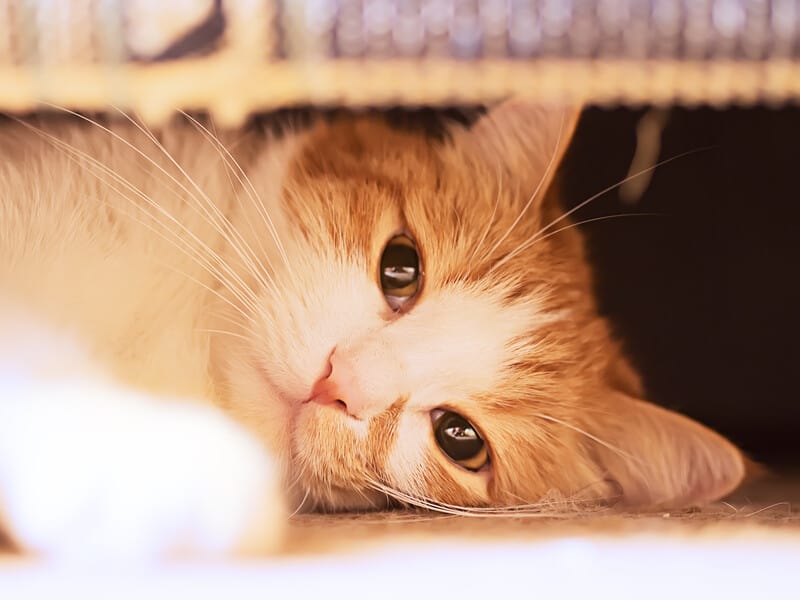Most cat parents would spend as much time as possible with their cat-children. However, most of us have jobs or other responsibilities to take care of during the day. This may result in our cats getting lonely.
Some people might think that animals have less developed emotions and that cats don’t experience loneliness. However, according to experts, cats do experience a host of emotions.
“If cats can’t share spaces, proximity, and time with their preferred buddies, they will get lonely,” explains Dr. Carlo Siracusa, director of Animal Behavior Services at Penn Vet’s Ryan Hospital.
Although cats are considered solitary animals, this applies to cats in the wild. Domestic cats are social beings who need companionship from humans or other animals. Although cats can be alone for a while if left unattended regularly and for a long time, they get depressed.
How to tell if your cat is lonely?
Some cats can handle loneliness better than others. Some breeds, like Siamese cats, are specifically known to hate being alone and will be very vocal about it.
Every cat has a different personality and will react slightly differently to being left home alone.
We have personally seen cats who were perfectly fine with their owners going out to work all day and cats who hated it and displayed signs of loneliness.
This goes to show that each cat responds differently to some alone time. That being said, here are ten telltale signs that your cat might feel lonely.
General changes in behavior
The first thing to look out for is a general change in behavior. Does your cat keep more to herself lately, or does she interact with you differently? Initially, these signs may be very subtle, and if you’re busy, you might overlook them or ignore and dismiss them.
These subtle changes may worsen if the situation doesn’t improve and escalate into some of the more serious behavioral problems below.
Overgrooming
Loneliness causes stress in cats, and when cats deal with prolonged stress, they will start to display a host of weird behaviors.
One of those behaviors is overgrooming. It’s normal for a cat to be meticulous in its daily grooming and cleaning routine. However, something might be wrong if it starts to look more like an obsession.
Lonely cats can rigorously lick themselves and pull out patches of fur, often to the point that they develop bald spots.
Excessive Meowing
Some cats are more vocal than others. For example, Siamese cats are one of the most vocal cats. However, a meowing cat usually does so to attract attention from humans.
If your cat starts meowing more than usual, it might indicate that she feels lonely and craves your attention.
Being overly clingy
Cats are usually well known for enjoying some alone time as well. As long as there is a more or less equal balance between cuddling and your cat having some time to herself, that’s fine.
Cats who feel lonely may desperately want to create some time together with you. She might dart around your feet as you walk through the house. She may want to sit on you all the time or won’t leave you alone when you want to get some work done.
Another thing we often see is that cats will hang on to the personal possessions of their owners when they feel lonely. This could be by taking small items with their owner’s smell, like socks, gloves, or a scarf, or sitting on top of your clothes.
Being destructive
Lonely cats often get bored and need to find something to keep them occupied. Some cats develop destructive behaviors when alone for the entire day without much to do.
Therefore, it is not uncommon for those idle paws to dig into your couch, clothes, or carpet or knock things over.
We won’t know for sure until we find a way to ask them, but we also think there might be some revenge towards you for not spending enough time with them when they resort to this behavior.
A great way to save your couch from being the victim; provide a scratcher like this one. It’s lined with catnip, and cats love the paper texture for scratching and nap-taking.
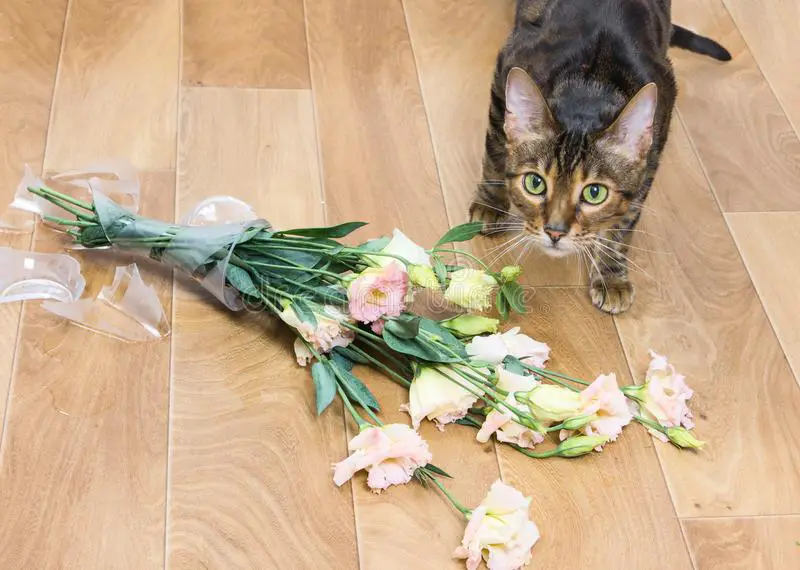
Litterbox issues
Lonely cats can be just like little kids sometimes, and one of the ways they try to get your attention is by doing something they know is wrong.
One of these things might be peeing outside of their litterbox. Even when that attracts your negative attention, they will take it. The other reason is that they are making a statement that your behavior does not carry their approval.
After ruling out any medical cause (like urinary tract problems common in cats), you can take this as a clear sign that your cat needs more attention because she’s feeling lonely.
Being anti-social
Apart from getting attention from their owner, some cats display the opposite behavior to seclude themselves from their owners. Often it’s also the result of other failed attempts to get attention from their humans.
If your cat started to hide and spend more time than usual by herself, it’s a good sign that this is driven by loneliness.
When the situation reaches this stage, your cat might have already given up on you, and it needs a real effort to repair the problem.
Being aggressive
Aggressiveness is usually the next step from the previous point, where cats become anti-social. This may exhibit itself by being aggressive when you approach them in their hideout or trying to stop you from leaving the house aggressively.
Again, every cat reacts differently, but usually, when cats resort to being aggressive, things have gone too far, and they see no other way out. It’s time to spend some quality time with your kitty.
At this stage, it’s best not to rush things and take the time to work on your relationship with your cat. It might be good to apologize to your cat so that your cat understands.
Sleeping too much
There’s no question about it. Cats need a lot of sleep; however, if you notice your cat sleeping more than usual, ask yourself if your cat might be bored. If so, spending quality time with her would be great.
Loss of appetite
Cats coping with mental problems like dealing with loneliness or loss are known to lose their appetite. It’s a bit like what we humans know as being lovesick.
It’s a sign of a cat who has given up mentally and sees no way to resolve the situation.
Before drawing any conclusions, it’s always good to rule out a medical reason for your cat not eating, but loneliness could be the cause.
On the other hand, another way your cat may cope with its boredom and loneliness is to start overeating just to have something to do. This can cause several other issues like obesity or cat diabetes.
What to do if your cat is lonely?
To be clear, the symptoms described above will not come from your cat being left alone occasionally for a few hours. These are signs of a real and ongoing problem, and your cat is not in a good place, mentally speaking.
Unlike dogs, cats are the perfect pet for people who live busy lives. However, they are still living beings who need your love and attention. It’s all about finding the right balance between play and cuddle time and you time.
The good news is that you can repair the situation and rebuild your relationship with your cat or, better yet, avoid your cat feeling lonely altogether.
Here are some things to help you keep a healthy relationship with your cat and ensure they won’t get lonely when you’re away.
Make time for your cat
Set aside some time to play or cuddle with your cat daily. Although the more, the better, just 15-30 minutes of dedicated time for the two of you is already enough.
Depending on your cat’s age and personality, decide how this time is best spent. Young cats may need more physical activity, so active playtime might be what they crave. Older or adult cats often enjoy sitting together and watching TV together while you stroke them.
Try talking to your cat
To some people, this may sound silly because we think our cats cannot understand a word of what we’re saying. However, it’s not about what we’re saying to our cats but about the connection we create when speaking with them.
Cats are very sensitive to our tone of voice and understand when we’re addressing them. They also know that humans are vocal creatures, which is why they meow to us far more than they use meowing to communicate with other cats.
Talking to your cat often will strengthen your bond with them, and you’ll notice that your cat starts ‘speaking’ back to you.

Have someone cat-sit
When you’re regularly out for most of the day, ask someone to drop in every once in a while. It should be someone who likes spending time with your cat instead of just feeding her and leaving again.
This will break the day a bit for your cat, and if it’s a regular visit, it might actually be something she looks forward to.
Create distractions
Even though your cat may spend a good portion of the day alone, it doesn’t mean she will get lonely if there are enough distractions.
When she has something to keep her mind (and paws) occupied, time goes by faster, and they will enjoy themselves more while you’re gone.
Adopt a companion
The ultimate distraction may be a real friend and companion. Domesticated cats are social animals; some thrive when they have another cat to play and cuddle with while you’re out.
Cats are mysterious creatures, and some of them love companionship while others may hate it. You won’t know beforehand, but especially if your cat is still relatively young, there is a good chance that they will bond with another cat, and adopting a cat may be the best medicine against loneliness.
Make sure you introduce the new housemate slowly and carefully. You don’t want to cause unnecessary stress to your cat.
Play the radio or TV
A simple thing that often helps against loneliness is turning on the radio or TV while you’re out. The sound of voices talking will give the impression that your cat is not alone. It creates distraction, and it will soothe her mind.
Final thoughts
Having a cat, or any pet for that matter, is responsible for taking care of them. Not only take care of their physical health by feeding them on time or taking them to the vet when they’re sick.
It also comes with the duty to ensure that they are well cared for mentally and receive the love and care they need and crave.
Only a few things are more devastating to see than pets who are not loved and crave attention from their human. Some cats just accept; others may search for a new and better home.
While toys may help to distract your cat temporarily, there is no substitute for your love and attention. The best way to prevent loneliness in your cat is to spend quality time with them daily.
We hope this article gave you some valuable tips on recognizing loneliness in your pet and, more importantly, how to avoid it.

